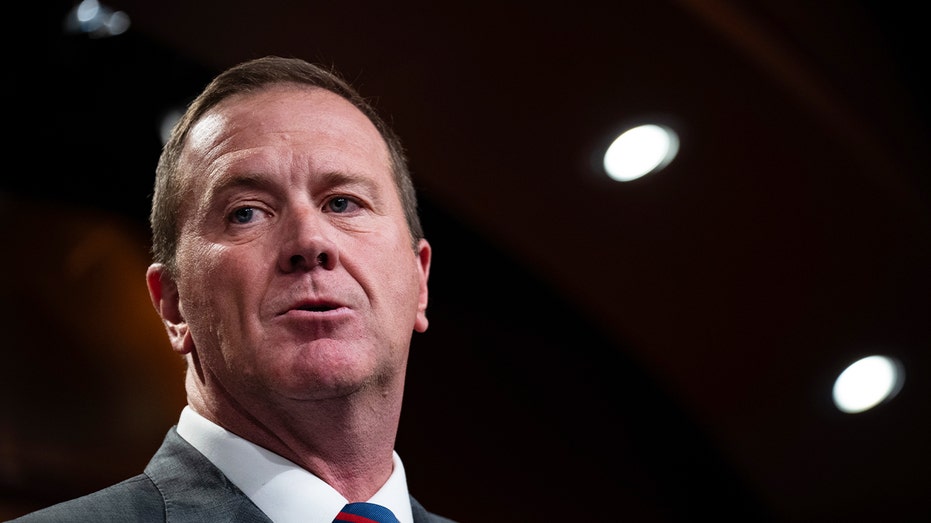GOP Senator waves away worries about skeptical justices in censorship Supreme Court case
Sen. Eric Schmitt isn't dismayed by seemingly skeptical questions from Supreme Court justices during oral arguments in Murthy v. Missouri on Monday over the federal government's ability to direct and coordinate with social media companies.

EXCLUSIVE: After the Supreme Court heard oral arguments on Monday in the case of Murthy v. Missouri – which addresses the Biden administration's ability to communicate with and direct social media companies and examines what constitutes persuasion versus coercion – Sen. Eric Schmitt encouraged Americans not to be discouraged by the skepticism implied by the justices' questions.
"I thought the arguments yesterday went well," the Missouri Republican told Fox News Digital in an interview on Tuesday. "The record is very clear."
SEN GRAHAM TOUTS TRUMP PLAN FOR UKRAINE LOAN IN OVERSEAS MEETING WITH ZELENSKYY
In 2022, when Schmitt was attorney general, he joined then-Louisiana Attorney General Jeff Landry to file a lawsuit against the Biden administration for "allegedly colluding with Social Media Giants," particularly to censor free speech surrounding the COVID-19 pandemic and the results of the 2020 election.
According to published reports, a majority of the Court appeared doubtful about Schmitt and Landry's lawsuit, asking questions suggesting they may not agree with the 5th Circuit Court of Appeals in Louisiana.
"I'm hopeful that the Court will see it the same way that the lower court did in their issuing an injunction prohibiting this kind of censorship," Schmitt said following the Supreme Court arguments.
U.S. District Judge Terry Doughty granted an injunction in the case in 2023, citing "substantial evidence" that warranted prevention of multiple federal agencies from communicating with social media companies regarding posts containing protected speech.
However, the Supreme Court removed many of the restrictions put in place by the injunction when it agreed to hear the administration's appeal.
"I think it's always tricky to try to guess what a justice is really thinking about the case based on some of the questions," said Schmitt.
Justices seemed largely skeptical of the Republican-led effort to curtail the executive branch's communication with the companies. One example pointed to by both Justices Brett Kavanaugh and Elena Kagan was that of White House correspondence with the news media, which is often looking to shape coverage, but isn't considered a violation of the First Amendment.
The Court also prompted the plaintiffs on several hypothetical scenarios, wherein government guidance and communication could be necessary and important for public safety.
"A lot of the questions were focused on what kind of interaction – what was the nature of the interaction between the government and these Big Tech giants like social media companies? And that's not new," Schmitt explained.
FLORIDA CONGRESSMAN HELPS 13 MORE AMERICANS ESCAPE HAITI, SWIPES AT BIDEN 'PATTERN OF ABANDONMENT'
He noted that similar questions were asked in lower courts that made rulings in their favor.
"When you look at all of [the discovery] and put it all together, it definitely shows not just coordination – which by some standards could be enough – but even the coercion standard, if that's what the Court goes with," the senator added. "It would be hard to believe that you couldn't see that from the totality of the documents."
Despite the doubt projected by much of the questioning, Justice Samuel Alito noted to the Court, "Whatever coercion means … whatever happened here is sufficient," in regard to the direction of Biden administration officials to private companies.
Schmitt further emphasized the scale of the Biden administration's social media operation, explaining, "This wasn't a one-off thing by one or two government officials."
"This is coming from agencies most Americans probably never heard of, working in coordination to do one thing – which was to silence dissent, principally over COVID-related issues," he said.
A decision in the case is expected from the Supreme Court in the early summer.



